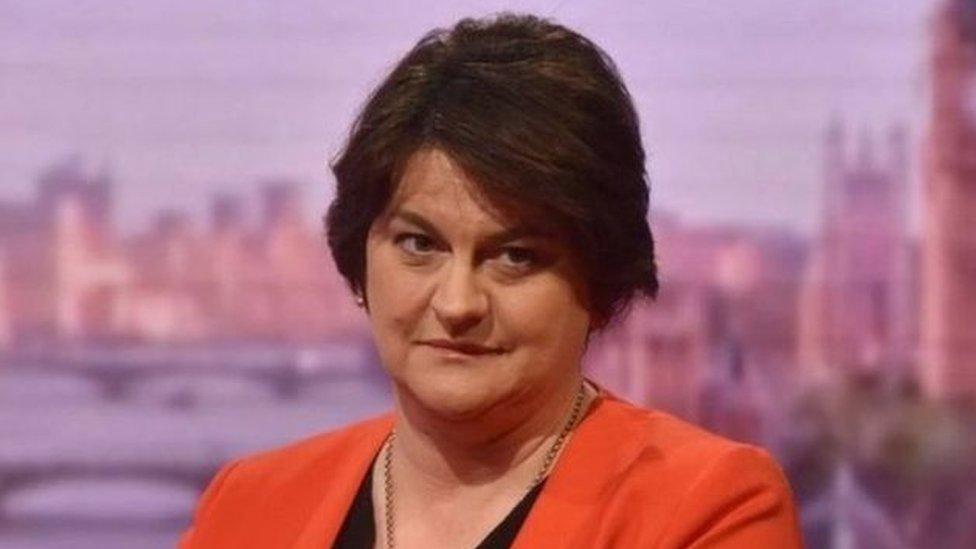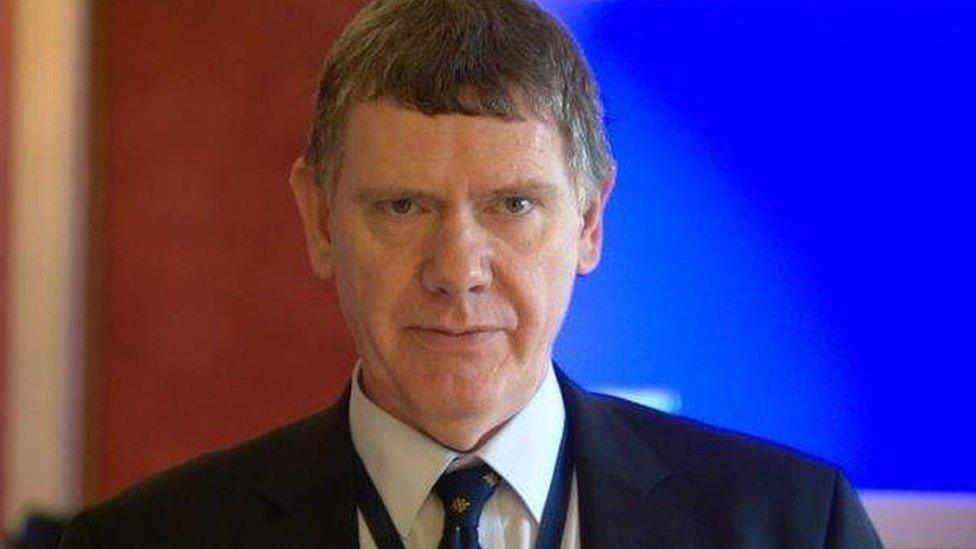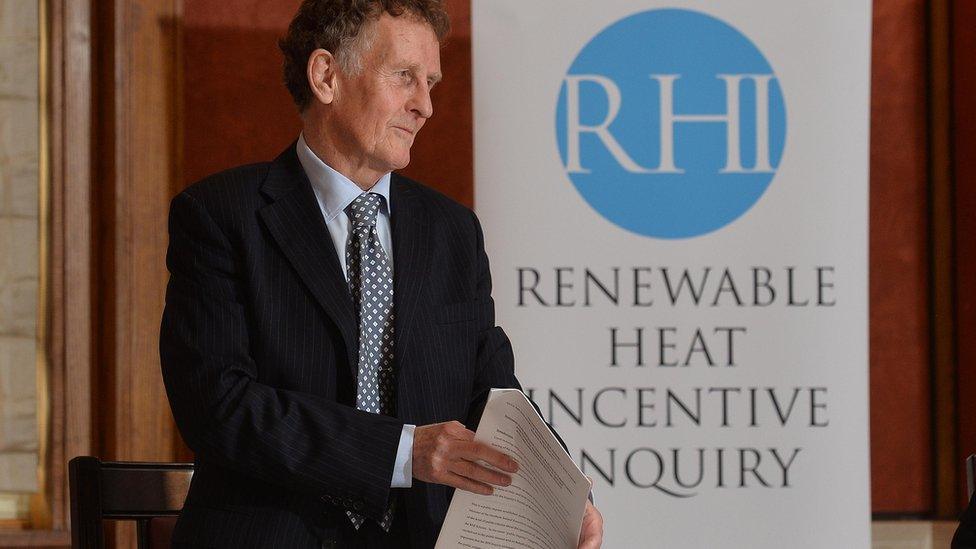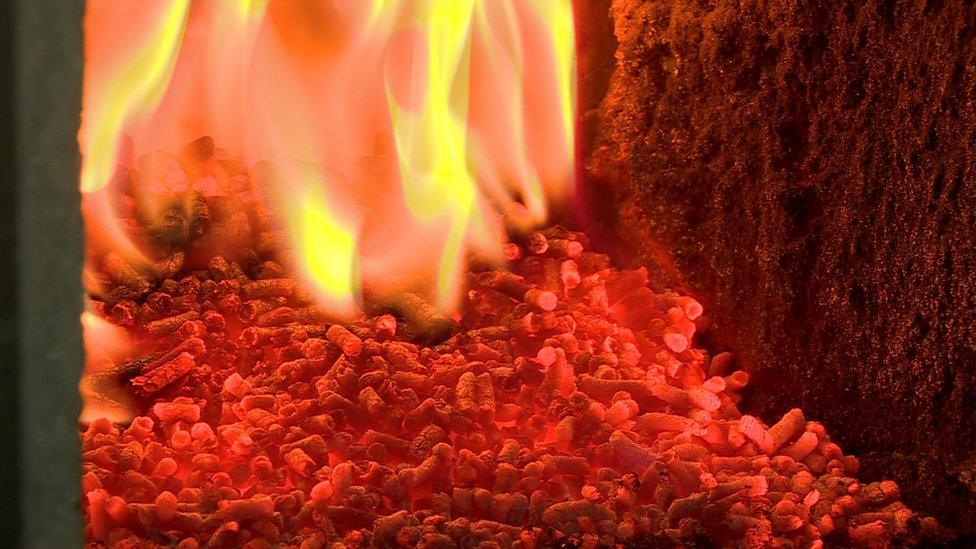RHI: Inquiry must decide if Arlene Foster showed 'candour'
- Published

DUP leader Arlene Foster addressed the assembly in December 2016
The RHI inquiry will have to decide whether an Arlene Foster assembly statement at the height of the scandal showed the "candour" which might have been expected.
The issue was raised by counsel to the inquiry David Scoffield QC.
Mrs Foster addressed the assembly in December 2016 as the political row over the debacle intensified.
It followed an interview given by her former DUP colleague Jonathan Bell to the BBC's Stephen Nolan.
On the eve of her assembly address on 19 December 2016, a senior civil servant suggested an amendment to Mrs Foster's speech which he believed would give the fullest possible picture of what had happened.
Dr Andrew McCormick was then the permanent secretary at the Enterprise Department which was running the scheme.
He suggested to a DUP special adviser (Spad), Richard Bullick, that Mrs Foster include a line saying that Mr Bell had not wanted the delay and that "others in the party were pressing for the scheme to be kept open", because they mistakenly believed that the Treasury would foot the bill for the entire Renewable Heat Incentive (RHI) spend.
Spad involvement
The inquiry has heard that Mr Bell's former DUP Spad, Timothy Cairns, will tell the panel that a number of party colleagues, including Mrs Foster's former adviser Dr Andrew Crawford and Timothy Johnston, a senior party official and adviser to former First Minister Peter Robinson, had been involved in discussions around the scheme.

Dr Andrew McCormick was the permanent secretary at the Enterprise Department which was running the scheme
Mr Cairns claimed that at one point that Mr Johnston told him there would not be cost controls and he was to work with Dr Crawford to come up with an alternative.
Mr Cairns has said he believed the involvement of the other Spads was with a view to help formulate a "party position" on how to proceed without damaging those who had invested heavily on the strength of the scheme and its payments.
His evidence has been disputed by both men. Mr Johnston said he had no role in the amendment of the scheme and did not seek to influence Mr Cairns.
Dr Crawford said he did not seek to delay cost controls until the last possible date acceptable to officials.
Mr Scoffield said there was a "very fundamental conflict" between what Mr Johnston said and Mr Cairn's evidence, but it appeared that during the summer of 2015, Dr Crawford was keeping Mr Johnston "up to speed" with the progress of the RHI issue.
Timing of cost controls
Mr Scoffield said that comparing Dr McCormick's proposed amendment with what Mrs Foster had actually said in the assembly showed that her address had been "extremely carefully worded".
In it, she said the decision over the timing of cost controls had been entirely a matter for Mr Bell.
She said the only person who had the authority to overrule him was the then First Minister Peter Robinson and he had not done so.
Mrs Foster also said that if anyone had made representations to Mr Bell they were not acting with the "authority of the party".
'Hung out to dry'
Mr Scoffield said Mrs Foster's former adviser, Dr Crawford, had subsequently told fellow DUP Spads he felt "hung out to dry" by her speech.
Mr Scoffield said the involvement of DUP Spads in the summer of 2015 was not addressed in "any detail" in Mrs Foster's assembly address.

The RHI public inquiry is being chaired by Sir Patrick Coghlin
"The line being adopted is that the timing of the introduction of cost controls was entirely a matter for Mr Bell," he said.
"Whilst that might be correct as a matter of law and ministerial responsibility, the panel might wish to take a view, having heard all the evidence, whether the statement displayed the candour that could be expected in the circumstances."
Mr Scoffield said the panel would also have to consider whether the intense political atmosphere of the time lent itself to candour, or whether that should even have been a consideration.
- Published7 November 2017

- Published13 March 2020
